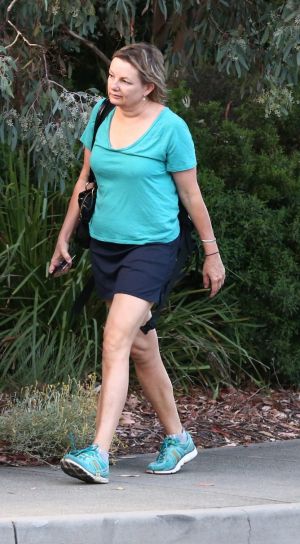
Health Minister Sussan Ley arrives at Parliament House in Canberra on Monday. Photo: Alex Ellinghausen
The federal government is committed to making non-concession patients pay more to see their GP, Health Minister Sussan Ley has warned ahead of her next meeting with health and consumer groups on Tuesday.
On the eve of a meeting in Canberra with eight organisations believed to be opposed to any new GP fees, Ms Ley reiterated her view that people who can afford to pay more for healthcare should pay more.
“We’re committed to maintaining high-quality care and treatment and protecting bulk-billing for concession card holders and the vulnerable and both will be high on my agenda today,” she said on Monday.
“However, with over 70 per cent of Medicare-eligible medical services provided to non-concessional patients now being bulk-billed, we must recognise that doing nothing is not an option.”
Ms Ley, who is consulting with various doctors’ and consumer groups to draft what will be the government’s third attempt to reform Medicare in a year, went on to say: “It’s important we value general practice and other health services. That’s why I’ll also be discussing the importance of ensuring those who have the means to do so can make a modest contribution towards the cost of their own care and treatment.”
The push to abandon free universal healthcare puts the new Health Minister on a collision course with the groups she is meeting on Tuesday, including the Australian Council of Social Service, the Consumers Health Forum of Australia, the Public Health Association of Australia and the National Aboriginal Community Controlled Health Organisations.
The other organisations due to attend are the Australian Association of Social Workers, Australian Health Care Reform Alliance, National Rural Health Alliance and Social Determinants of Health Alliance.
Most have already voiced opposition to any form of co-payment for GP services, saying it could undermine the health and wellbeing of Australians, particularly those with chronic illnesses on low incomes.
ACOSS chief executive Dr Cassandra Goldie said her group believed universal access to primary healthcare services, irrespective of income or means, was a critical element of Australia’s social infrastructure.
“ACOSS is extremely concerned about any reforms that undermine this, particularly if people miss out on timely and appropriate medical advice due to increased cost of health services,” she said.
“While we applaud any move to reduce ineffective and poorly targeted spending within the health budget, this must be done in line with the equally important priority of improving population health.
Dr Goldie said the government could save billions of dollars by making other changes such as abolishing the private health insurance rebate.
Last week, the Consumers Health Forum said a co-payment would hit hundreds of thousands of chronically ill patients who do not qualify for concessions but can ill afford extra bills for specialists’ appointments, drugs and medical tests. It said Australians already faced some of the highest out-of-pocket fees for medical care in the world.
